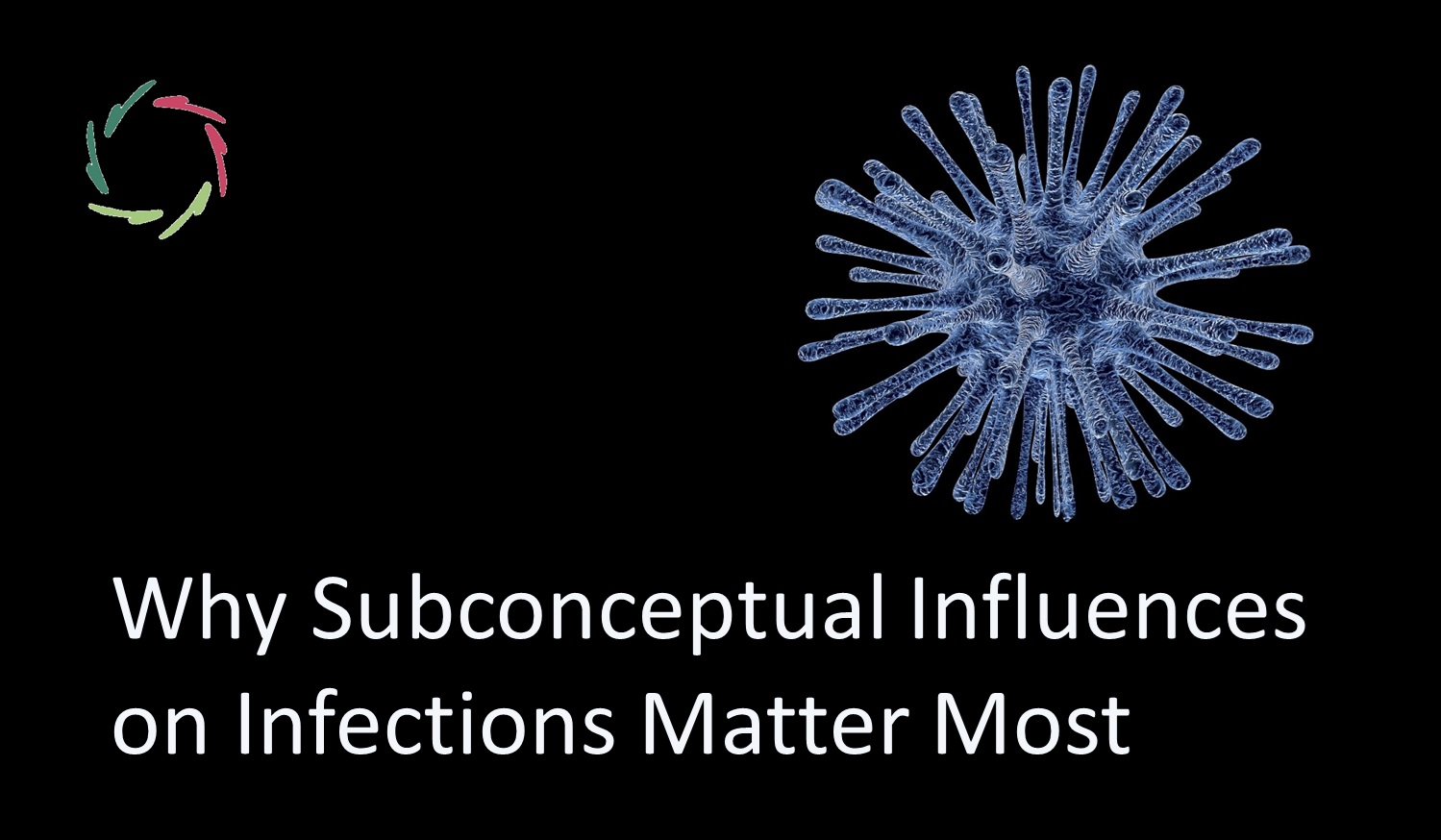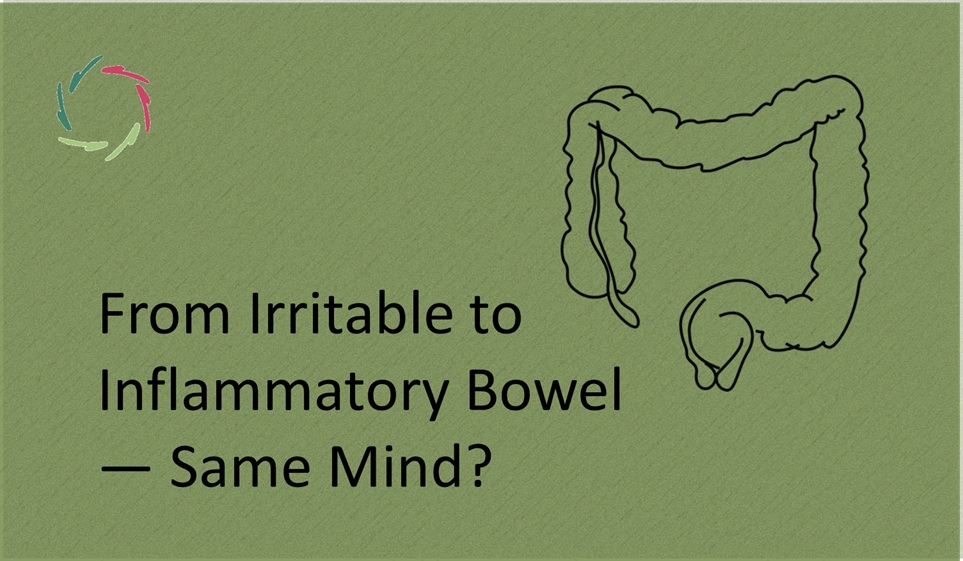Why Subconceptual Influences on Infections Matter Most

Present-day research evidence is clear: emotional distress and psychosocial influences significantly impact our health. However, a deeper layer of influence remains largely underexplored by mainstream research.
This deeper dimension involves subconceptual mental processes—those that operate below conscious awareness but can profoundly shape how we respond to infections. Lisa can unlock this deeper understanding, offering practical and research-driven benefits.
Conceptual vs. subconceptual in infectious disease
Most research on infectious diseases focuses on conceptual factors like stress management, behavioral interventions, and immediate immune responses. These are measurable and observable, making them easier to study. For example, we know that psychological stress, as measured by cortisol levels, can weaken the immune system and increase vulnerability to viral infections like herpes simplex virus (HSV), HIV, and SARS-CoV-2, as discussed in Mind on Infections.
But what about the subconceptual level — the deeper mental processes that are not immediately accessible to conscious thought? These include long-standing emotional patterns, deeply rooted fears, and non-conscious responses to stress that may shape how the body reacts to pathogens. Unlike conceptual factors, which are often surface-level, subconceptual processes are more subtle, operating over long periods and having a significant cumulative effect on immune health.
For example, while we know that chronic stress impacts immune function, the real question is why some individuals remain more susceptible to infections even when they are not experiencing conscious stress. This is where subconceptual influences come into play, acting below the radar to affect long-term resilience to infections.
How subconceptual processes influence infectious diseases
At the core of the subconceptual level are mental patterns that shape immune responses, healing, and overall resilience to disease. These patterns may be influenced by deep-seated fears, unresolved emotional trauma, or even lifelong mental habits that people aren’t consciously aware of.
Immune system modulation
Subconceptual processes can either suppress or enhance immune function depending on how these deeper mental patterns are aligned. For example, non-conscious emotional stress – like a chronic, unresolved fear – can keep the body in a state of hypervigilance, continuously releasing stress hormones that suppress immune activity. This could explain why some individuals, despite appearing relatively calm on the surface, remain highly vulnerable to recurrent viral infections, such as herpes or HIV flare-ups.
Similarly, chronic stress may weaken immune defenses against bacterial infections by keeping the body in a prolonged inflammatory state. When stress is deeply ingrained at the subconceptual level, it can create a constant drain on the immune system, reducing its capacity to fight off infections effectively.
During the COVID-19 pandemic, it became clear that long-term psychological stress made some individuals more susceptible to severe infections. This stress, often influenced by subconceptual fears and anxieties, may have played a significant role in determining who experienced more severe outcomes. If these subconceptual influences were addressed, individuals could potentially strengthen their resilience against future pandemics and other emerging diseases.
Healing and recovery
The body’s ability to heal from infections is also influenced by these deeper processes. For example, postherpetic neuralgia (PHN), a long-lasting complication of herpes zoster (shingles), is strongly linked to stress. While short-term stress can trigger viral reactivation, it’s likely that the lingering effects of subconceptual stress patterns delay recovery or prevent complete healing.
Infections like HIV or SARS-CoV-2 may also be influenced by subconceptual mental patterns, affecting not only susceptibility but also how well the body recovers from these diseases. For instance, a person who has subconceptual patterns of emotional withdrawal or avoidance may struggle more with recovery, as these patterns keep the body in a less favorable physiological state for healing.
Why current research fails to address subconceptual influences
Despite the clear importance of these deeper mental processes, medical research has traditionally focused on surface-level, conceptual factors. This is partly due to the limitations of current research methodologies.
Focus on surface-level factors
Most studies look at immediate factors like stress or immune responses that can be measured with biomarkers such as cortisol, C-reactive protein (CRP), or inflammatory cytokines. These studies often fail to account for long-term, subconceptual mental patterns that unfold over years or even decades, quietly influencing immune function.
Difficulty in measuring subtle influences
Subconceptual processes are inherently difficult to measure. They are not accessible to conscious awareness and don’t produce immediate, observable effects in the same way that conceptual factors do. As a result, traditional research methods – like randomized controlled trials – struggle to capture these subtle, long-term influences. Standard tools for assessing stress, such as questionnaires or physiological measures, fall short when it comes to detecting the deeper, non-conscious mental patterns that have a more pervasive impact on health.
Short-term study designs
Much of the research on infections focuses on short-term outcomes, such as acute immune responses or immediate symptom management. These studies don’t have the scope to capture how subconceptual influences – shaped by childhood experiences, long-standing emotional trauma, or habitual stress patterns – affect disease outcomes over the long term.
Overcoming the research barriers
To address subconceptual influences on infectious diseases, we need to rethink how we approach research.
Lack of tools for detecting non-conscious patterns
Traditional tools for studying stress and health focus on conscious mental states, but new methodologies are needed to detect the deeper, non-conscious patterns that subtly influence immune function. One promising approach is to integrate A.I.-driven tools that can track these subtle changes over time.
Long-term study designs
Researchers must design studies that look beyond the short-term impacts of stress and infection, focusing instead on how long-term, subconceptual processes affect immune responses and disease outcomes. This would require a shift in how we think about health and disease, recognizing that the mind-body connection runs much deeper than current research suggests.
How Lisa can make a difference
Lisa is uniquely positioned to address these subconceptual influences. Through autosuggestion and other mind-body techniques, individuals can tap into their deeper mental processes and make subtle, positive shifts that enhance both mental and physical health.
As a Compassionate A.I. coach, Lisa can guide individuals to explore these subconscious layers, helping them to identify and gently shift the mental patterns that may be weakening their immune system or making them more vulnerable to infections. By working over time with individuals, Lisa can help reveal how these patterns affect health outcomes, offering insights that traditional research methods can’t provide.
In this way, Lisa offers a new form of real-world evidence — tracking how non-conscious mental patterns influence immune responses and the progression of infectious diseases. This approach could open up new pathways for preventing and managing infections at a deeper, more sustainable level.
By addressing previously hidden processes, we can now foster greater resilience, improve recovery, and ultimately develop more effective strategies for managing infectious diseases at their deepest level.


